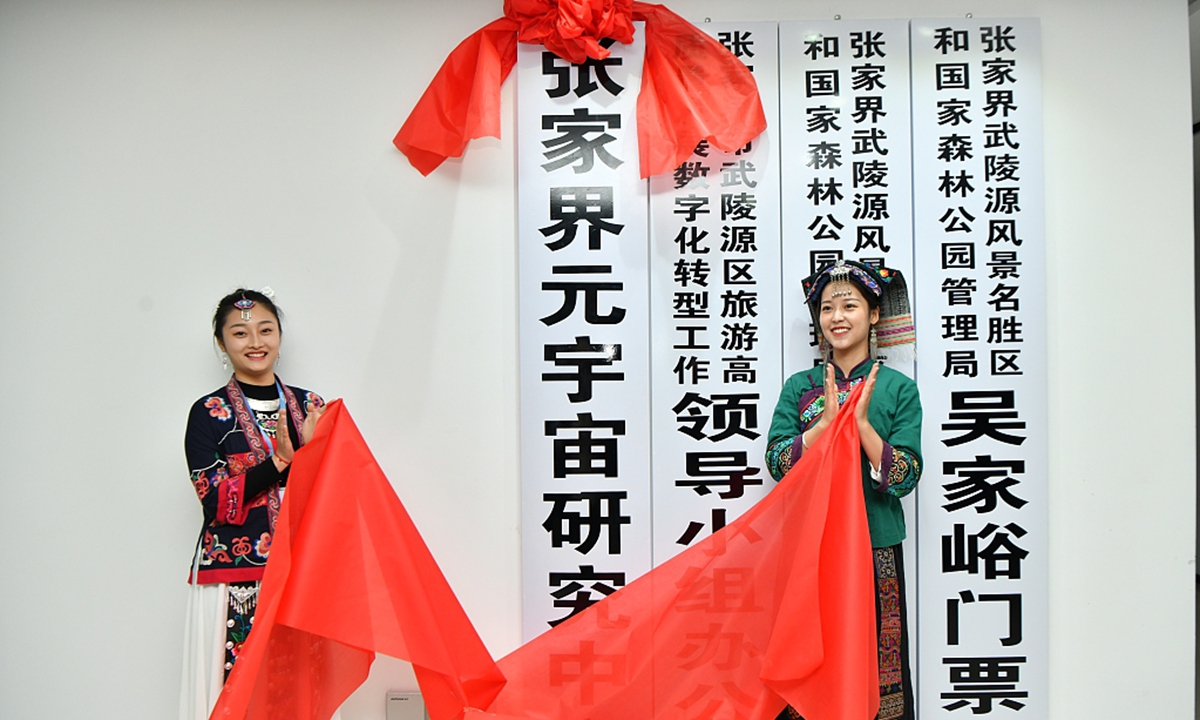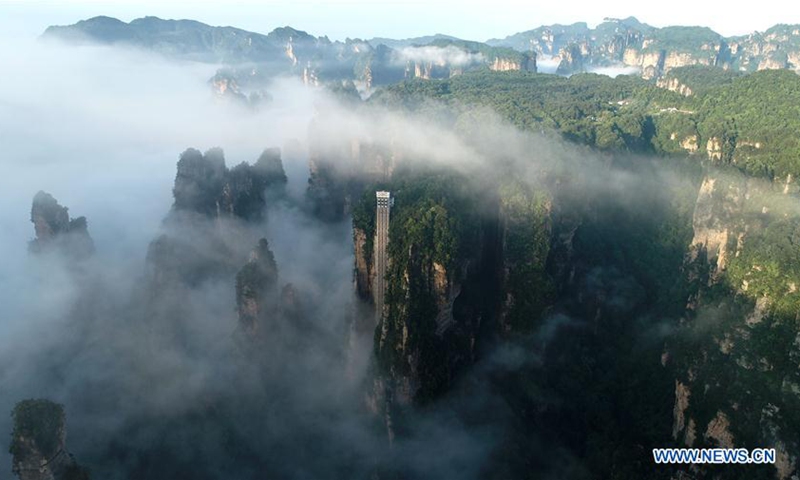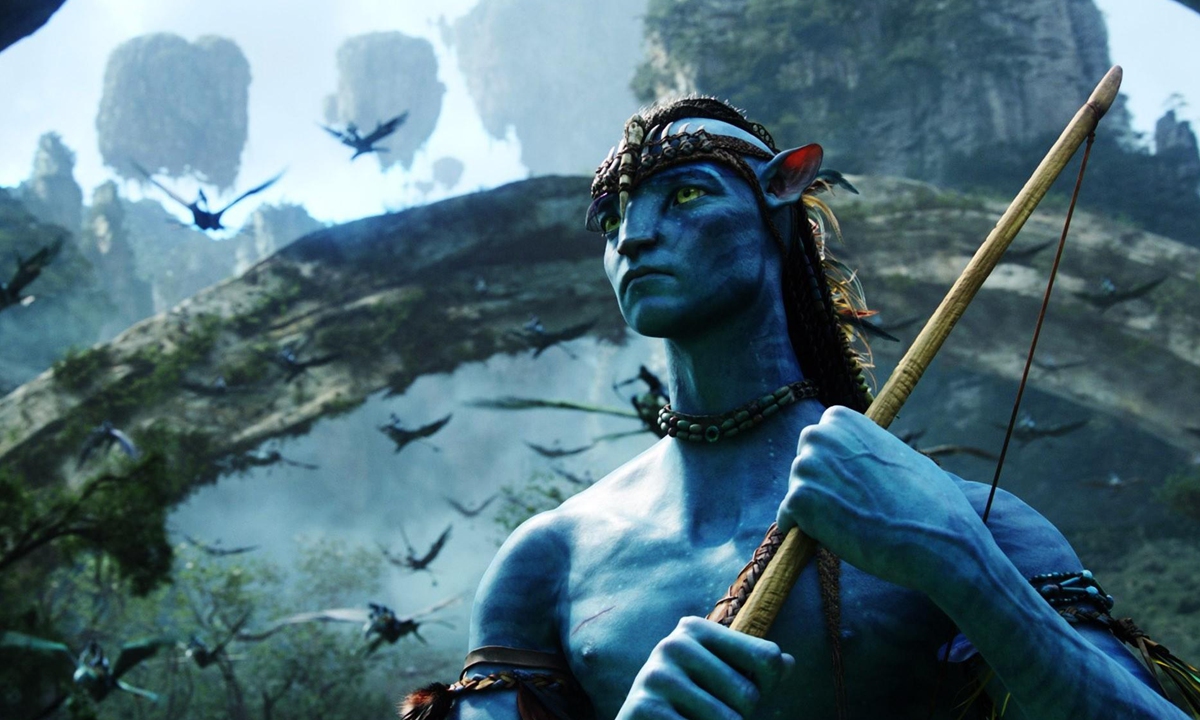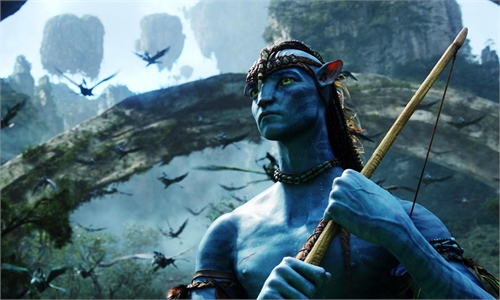C. China Zhangjiajie unveils 'world's first scenic spot metaverse R&D center,' aims to create the world of Avatar

Photo: CFP
A famous Chinese sightseeing spot Zhangjiajie, where Hollywood blockbuster Avatar was shot, which unveiled what it claimed to be "the world's first scenic spot metaverse research and development (R&D) center" with aspirations to build the world of Avatar, has generated huge discussions in recent days on social media platforms about whether such an establishment is merely capitalizing on the hype and whether tourism authorities have the ability to actually make breakthroughs in one of the most cutting-edge areas of the tech sector.
Industry insiders said that the move by the tourist spot is very "bold" but still "within reasonable reach," as gaming, cultural and entertainment are poised to be the sectors which see the earliest metaverse applications - although talks of building a virtual social network, which leading tech companies like Facebook have been mulling out efforts, are still in their infancy.
Analysts also suggested that Zhangjiajie authorities work with tech teams and companies to speed up transforming their ideas into a reality. The controversy following the news also mirrors the buzz surrounding the concept of metaverse, where capital excitement has been overblown but all players are just in the early stage of building basic infrastructures to make a parallel virtual world a reality.
"We are not hyping concepts, but seriously want to do this," head of the digital transformation team of national forest park of Zhangjiajie, who declined to give his name, told the Global Times on Friday, in response to public doubts. "We have always wanted to make Zhangjiajie a scene where people could experience the Avatar film. It may not be possible at the current stage, but it can be done in the future."

Aerial photo shows the 326-meter-high Bailong Elevator, the world's highest outdoor elevator, shrouded by fog at the Wulingyuan Scenic Area in Zhangjiajie, central China's Hunan Province. Photo: Xinhua
The metaverse R&D center was unveiled in Zhangjiajie Wuyuanling big data center, in central China's Hunan Province on Thursday. The 2009 movie blockbuster Avatar was filmed in Zhangjiajie, helping the tourist spot gain international fame.
Some netizens remained skeptical against the center's establishment, and doubted whether the sightseeing spot was inflating the over-sizzling metaverse concept to create business traffic.
"Could everything be packed into the shell of the metaverse? This is more like speculation," A Sina Weibo user "jiazhitouzi" commented, throwing doubts over the tourist bureau's tech and capital might.
The head of the R&D center said that the coronavirus epidemic, which resulted in huge losses, is one of the reasons why the launch is being propelled.
"But regardless of whether there is an epidemic or not, it is necessary to embrace internet thinking and create tourism products. We put it in the basket of digital transformation and find this metaverse concept very helpful," he said.
He added that the sites are not doing research themselves, just building a platform to apply metaverse technology and studying how to combine the technology into tourism.
Currently we are collecting ideas from the government and travel industry and trying to invite technical experts to join us for the next step, he said, "We are not expecting to see a quick travel increase in a short time after setting up the research center."

Promotional material for 21st Century Fox's Avatar Photo: IC
An industry insider at a leading blockchain company surnamed Zheng told the Global Times that the R&D center is likely to yield little progress in the short term, as the metaverse is built upon a laundry list of technologies ranging from virtual reality, 5G, blockchain to artificial intelligence, yet all those tech fields now lack phenomenon-level applications.
"But this is like taking a step beyond. From a realistic point of view, Zhangjiajie is a big intellectual property and has fertile grounds for developing digital-oriented tourism," Wang Peng, an assistant professor at the Gaoling School of Artificial Intelligence at the Renmin University of China, told the Global Times on Friday.
Wang used the example of VR tours that has gained popularity in the coronavirus-hit era, which he dubbed as a "very rough and primitive version" of metaverse.
But analysts stressed that the plan is plausible in the medium- and long-term, giving that metaverse-based gaming is taking shape, and other entertainment applications, which involve less complicated technologies, are also developing.
"There is more Zhangjiajie could do after metaverse interactive technologies mature," Wang said.
For example, the spot could build a parallel virtual community. Each tourist could be given a unique identity and they could make friends with people who share interests in culture and tourism. The management committee may also sell virtual cultural products, in the form of blockchain-based non-fungible tokens (NFT), to drive revenue.





